Music cognition in theory and practice: Prediction, creativity, and cultural evolution
23-25 February 2022, Online symposium on music
Music is a bio-cultural phenomenon fundamental to human life and flourishing. Exploring it from a cognitive perspective may offer a privileged access to music's cultural and biological roots, shedding new light on its experience and practice across a variety of contexts.
In this 3-day symposium, we offer early career researchers and students from any background a multidisciplinary, integrative perspective on music cognition and the rich variety of complementary methods and approaches it involves.
Renowned experts from both science and humanities will present and discuss three themes at the core of how and why we perceive, make, and enjoy music: prediction, creativity and cultural evolution. These topics will be approached from a range of perspectives, allowing participants to become familiar with different sides of the debate.
Symposium description
Spanning a large theoretical breadth, the three dimensions explored in this symposium - prediction, creativity, and cultural evolution - represent fundamental aspects of our current understanding of the musical mind. We would like to get together - online (still!) - to consider what the humanities and the cognitive (neuro)sciences each have to say on the study of musical behaviour, focusing on these dimensions.
We address each on its own, across the three days. On each day,
Two keynote lectures* are delivered by leading scholars in relevant fields: one from the sciences, the other from the humanities.
A roundtable session follows, where the theoretical stances brought up are discussed thoroughly.
A workshop offering hands-on training in methods from humanities or experimental methods that participants may find useful in their own research. An opportunity for humanities scholars to know more about empirical research, and for empirically-trained scholars to learn directly and actively from humanities scholars.
In the evenings, we propose informal Kaffeehaus sessions, with semi-moderated discussions focusing on "the hopes and fears of early-career researchers". This will include topics such as bridging gaps between fields, mentoring, finding collaborators, and other questions related to working in music cognition.
Open to: academics and students from any field and background, from both the humanities and the sciences, with an interest in music and/or music cognition.
Aims: Networking and learning are equal objectives: in addition to in-depth discussion of the three proposed themes (academic sessions), we hope for participants to develop new collaborations (informal sessions), ideally allowing their work to take on a more interdisciplinary perspective.
Registration: Please use the tab in the menu above. Participation is free of charge.
*Most keynote lectures (without their Q&A sessions) will be recorded and uploaded to YouTube to be accessible by participants.
Symposium's "raison d'être"
Prediction is a core component of mental life (Bubic et al., 2010). Within music cognition research, anticipation and expectation are driving forces of musical performance and music listening (Huron, 2006; Koelsch et al., 2019), thereby modulating attention and affect. Formal accounts of prediction such as predictive coding (Friston & Kiebel, 2009) embed music-specific phenomena within larger issues of cognitive sciences, such as the view of the brain as a Bayesian modelling machine, and of perception as hypothesis testing (von Helmholtz, 1867).
The capacity to predict future events is often associated with an active pursuit of novelty (Clark, 2018), the latter being one of the defining features of creativity. As a multifaceted phenomenon that permeates much of our cognitive life, creativity plays a key role in musical experience. Creative musical products can be generated in the spur of the moment as during improvisation (e.g., Loui, 2018), or through mental strategies carefully developed to explore and transform particular conceptual spaces, as in composition (Wiggins, 2016). Important aspects of this fascinating dialectics between creative thought and action might be captured through an in-depth analysis of musical imagery, where a rich variety of musical concepts, predictions, and possibilities for action and musical engagements, are variously elaborated and brought into the daylight of experience.
In a sense, creativity might also be at the heart of music making from an evolutionary standpoint when we consider its possible origins as a joint activity shared across simultaneously-performing groups. This bridges into the third proposed theme of cultural evolution. Here, music may be thought of as a co-evolved adaptation for social bonding (Mehr et al., 2020; Savage et al., 2021). This framework hopes to shed new light on the music's paradox of "unity in diversity", whereby inter-cultural variability in musical features exists alongside invariant (universal) ones.
The ethos of this event lies in the recognition of the fact that science and the humanities have complementary, yet equally valuable approaches towards these key concepts, and can mutually influence each other in various ways. For instance, while conceptual clarification could be facilitated by the analysis of empirical data, novel research questions and interpretations of existing findings may stem from rigorous theoretical analysis.
Keynote addresses by: Freya Bailes, Gary Tomlinson, Geraint Wiggins, Mariusz Kozak, Patrick Savage, Peter Vuust.
Additional workshops and talks by: David Q. Martinez, Erkki Huovinen, Helena Miton, Massimo Lumaca, Renee Timmers, W. Tecumseh Fitch.
References
Bubic, A., Von Cramon, D. Y., & Schubotz, R. I. (2010). Prediction, cognition and the brain. Frontiers in Human Neuroscience, 4, 25.
Clark, A. (2018). A nice surprise? Predictive processing and the active pursuit of novelty. Phenomenology and the Cognitive Sciences, 17(3), 521–534.
Friston, K., & Kiebel, S. (2009). Predictive coding under the free-energy principle. Philosophical Transactions of the Royal Society of London B: Biological Sciences, 364(1521), 1211–1221.
Huron, D. B. (2006). Sweet anticipation: Music and the psychology of expectation. The MIT Press.
Koelsch, S., Vuust, P., & Friston, K. (2019). Predictive Processes and the Peculiar Case of Music. Trends in Cognitive Sciences, 23(1), 63–77.
Loui, P. (2018). Rapid and flexible creativity in musical improvisation: Review and a model. Annals of the New York Academy of Sciences, 1423(1), 138–145.
Mehr, S. A., Krasnow, M. M., Bryant, G. A., & Hagen, E. H. (2020). Origins of music in credible signaling. Behavioral and Brain Sciences, 1–41.
Savage, P. E., Loui, P., Tarr, B., Schachner, A., Glowacki, L., Mithen, S., & Fitch, W. T. (2021). Music as a coevolved system for social bonding. Behavioral and Brain Sciences, 1–36.
von Helmholtz, H. (1867). Handbuch der physiologischen Optik (Vol. 9). Voss.
Wiggins, G. A. (2016). Defining inspiration? Modelling the non-conscious creative process. In The act of musical composition: Studies in the creative process (pp. 233–255). Routledge.
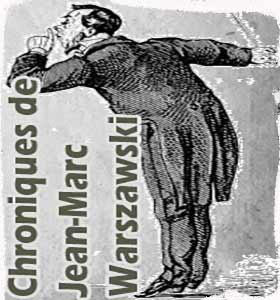
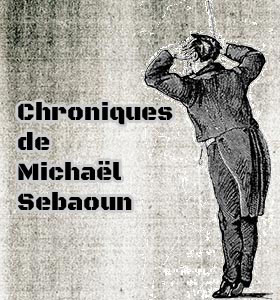
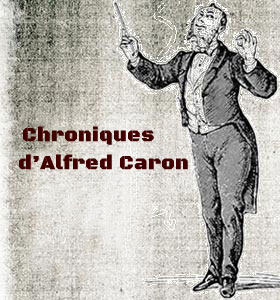
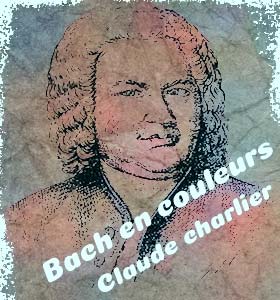
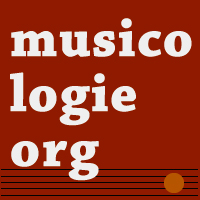 À propos - contact |
S'abonner au bulletin
| Biographies de musiciens | Encyclopédie musicale | Articles et études | La petite bibliothèque | Analyses musicales | Nouveaux livres | Nouveaux disques | Agenda | Petites annonces | Téléchargements | Presse internationale | Colloques & conférences | Collaborations éditoriales | Soutenir musicologie.org.
À propos - contact |
S'abonner au bulletin
| Biographies de musiciens | Encyclopédie musicale | Articles et études | La petite bibliothèque | Analyses musicales | Nouveaux livres | Nouveaux disques | Agenda | Petites annonces | Téléchargements | Presse internationale | Colloques & conférences | Collaborations éditoriales | Soutenir musicologie.org.
Musicologie.org, 56 rue de la Fédération, 93100 Montreuil. ☎ 06 06 61 73 41.
ISSN 2269-9910.

Samedi 8 Mars, 2025

